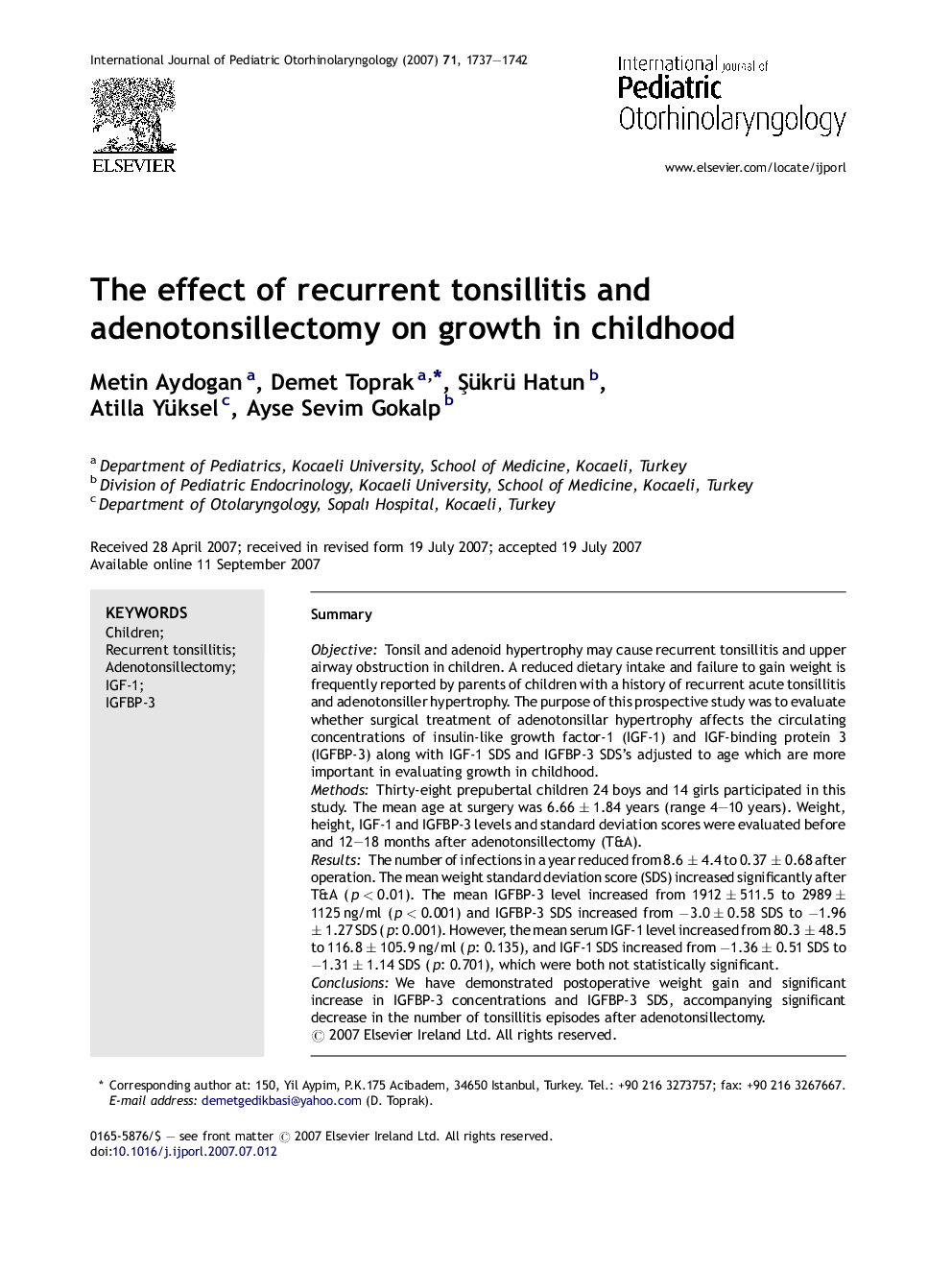| Article ID | Journal | Published Year | Pages | File Type |
|---|---|---|---|---|
| 4113366 | International Journal of Pediatric Otorhinolaryngology | 2007 | 6 Pages |
SummaryObjectiveTonsil and adenoid hypertrophy may cause recurrent tonsillitis and upper airway obstruction in children. A reduced dietary intake and failure to gain weight is frequently reported by parents of children with a history of recurrent acute tonsillitis and adenotonsiller hypertrophy. The purpose of this prospective study was to evaluate whether surgical treatment of adenotonsillar hypertrophy affects the circulating concentrations of insulin-like growth factor-1 (IGF-1) and IGF-binding protein 3 (IGFBP-3) along with IGF-1 SDS and IGFBP-3 SDS's adjusted to age which are more important in evaluating growth in childhood.MethodsThirty-eight prepubertal children 24 boys and 14 girls participated in this study. The mean age at surgery was 6.66 ± 1.84 years (range 4–10 years). Weight, height, IGF-1 and IGFBP-3 levels and standard deviation scores were evaluated before and 12–18 months after adenotonsillectomy (T&A).ResultsThe number of infections in a year reduced from 8.6 ± 4.4 to 0.37 ± 0.68 after operation. The mean weight standard deviation score (SDS) increased significantly after T&A (p < 0.01). The mean IGFBP-3 level increased from 1912 ± 511.5 to 2989 ± 1125 ng/ml (p < 0.001) and IGFBP-3 SDS increased from −3.0 ± 0.58 SDS to −1.96 ± 1.27 SDS (p: 0.001). However, the mean serum IGF-1 level increased from 80.3 ± 48.5 to 116.8 ± 105.9 ng/ml (p: 0.135), and IGF-1 SDS increased from −1.36 ± 0.51 SDS to −1.31 ± 1.14 SDS (p: 0.701), which were both not statistically significant.ConclusionsWe have demonstrated postoperative weight gain and significant increase in IGFBP-3 concentrations and IGFBP-3 SDS, accompanying significant decrease in the number of tonsillitis episodes after adenotonsillectomy.
